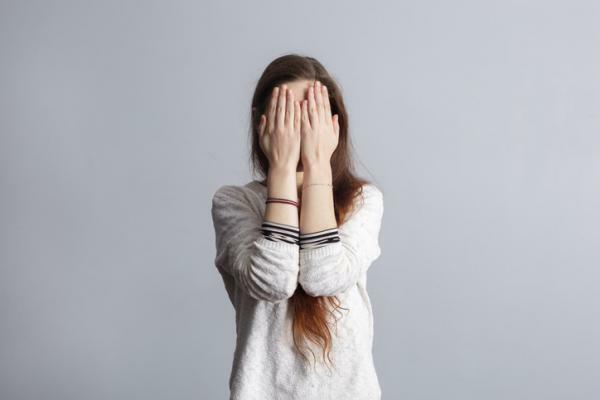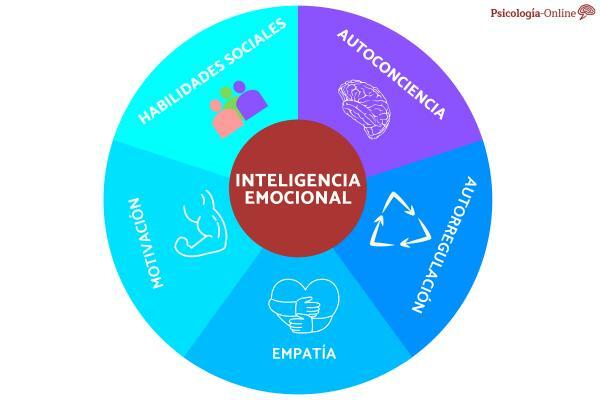
Being a shy person is not as bad as it seems, even having a shy behavior could be considered a virtue when shyness is moderate. In general, shy people tend to be more respectful, trustworthy and formal people in social interaction. Moderate shyness does not prevent a person from enjoying life and moving towards its goals and objectives, nor does it have to lack self-esteem. However, there are people whose shyness becomes extreme to the point of preventing them from having a good quality of life, interact with the people they want, feel unable to achieve their personal goals, have a very low self-esteem, among other things that also lead them to isolate themselves from others. This type of extreme shyness, which is extremely negative, in psychology is considered a social phobia. Social phobia is a psychological disorder that is located within the group of anxiety disorders and is considered one of the most common disorders.
In this Psychology-Online article about extreme shyness in adults: symptoms and treatment
The adults with extreme shyness or social phobia They present a series of common symptoms when they are interacting with other people, which we will describe below:
Physical symptoms
- Tachycardia.
- Facial flushing
- Excessive sweating
- Gastrointestinal upset.
- Shaking of voice and / or hands.
- Muscle tension.
- Tics.
Behavioral symptoms
- Avoidance and / or flight from social situations where they think they can make a fool of themselves or be made fun of.
- They can adopt behaviors designed to hide their anxiety when they are faced with some social interaction. For example, they tend to let other people do more than they do, plan ahead what they are going to say or do in a certain situation, they can consume alcohol to disinhibit, etc.
- They tend to adopt security measures to protect themselves from any possible social ridicule. For example, they can wear dark clothing so that sweating is not noticeable, not write in front of other people, not talk on the phone in front of other people, etc.
Cognitive symptoms
- They have negative thoughts and beliefs about themselves.
- They are very focused on themselves.
- They become obsessed with the possible consequences that their behavior can have and consider them catastrophic.
- They impose personal rules and norms on themselves that are grossly exaggerated. since they demand too much. When they cannot carry them out, they constantly criticize themselves.
- They may have a hard time concentrating and finding the right words when talking to one or more people.

Extreme shyness or social phobia usually appears in childhood or adolescence suddenly after a humiliating or extremely stressful experience for the person.
For a person's shyness to become extreme, leading to a social phobia, some factors must be present, such as the following:
- Biological vulnerability: Scientific research has been found to indicate that this disorder can be inherited.
- Psychological vulnerability: refers to everything that the person has learned throughout life, which determines the way in which they perceive difficult situations and how to deal with them. This way of perceiving life and personality is based on the parenting style that has been received, life experiences, etc. For example, if a person throughout his life has experienced constant negative social situations such as teasing, rejection, intimidation, marginalization, etc., is more likely to become a shy person, which if not corrected in time, later can lead to shyness extreme. On the other hand, the lack of social contact prevents the person from adequately developing their social skills. Regarding the parenting style, it has been found that children of overprotective parents, too demanding and not affectionate, are more likely to develop extreme shyness or phobia Social.
- Irrational beliefs: when throughout his life the person has developed a series of negative and irrational beliefs about himself and the way of perceiving the world. For example, thinking that you always have to please everyone, that in order to fit in with society you have to than being almost perfect, that it is better not to say anything so as not to be wrong, that you have no right to make mistakes, etc.
When an adult suffers from extreme shyness or social phobia, live limited and it is impossible for him to have a meaningful life due to the negative consequences that this type of disorder brings with it.
By avoiding the dreaded social situations, the problem only grows more and more, so the person runs the risk of be isolated totally from others. All of this can lead to major problems such as the Depression and other types of disorders that are not attended to in time can increase their severity. So it is worth making an effort to start a treatment, solve this situation and not allow this problem to become even more limiting.
Extreme shyness in adults or social phobia must be treated by a professional of mental health. The person who suffers from it must be evaluated so that the treatment that best suits their individual needs is applied.
In most cases, only the psychotherapy, however, it can sometimes be combined with the drug use like antidepressants or anxiolytics, which are only to relieve symptoms, by themselves they do not solve the problem.
The therapy that has been shown to be very effective in overcoming extreme shyness in adults is cognitive behavioral therapy. The main objective of this therapy is to inform the patient through psychoeducation all about this type of phobia, modify their beliefs and thoughts irrational that are preventing you from relating in the way you want to with others and achieving your personal goals, changing them for more positive and adaptive. As well as eliminating those avoidance and flight behaviors that it presents in the face of feared social situations and gradually get used to it through relaxation techniques and exposure to these types of encounters social. To do this, you are also taught a series of skills so that you can feel more secure when interacting with other people.
You may also be interested in reading our article on how to help a shy and insecure child.

This article is merely informative, in Psychology-Online we do not have the power to make a diagnosis or recommend a treatment. We invite you to go to a psychologist to treat your particular case.


